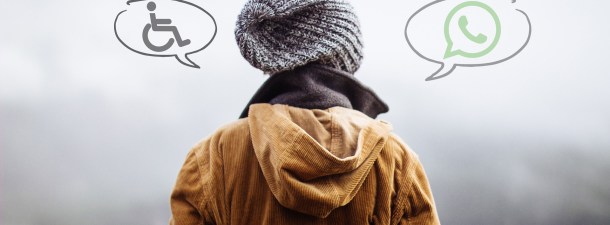For us extroverts, we had our voice and used it loudly and proudly from an early age. But the world is wonderfully diverse and not everyone is the same. In fact, a lot of kids struggle from an early age to express themselves. Thankfully startups are looking to help integrate the marginalized into our ever connected world.
Today we offer a listicle of apps and services that help kids (and grownups) with disabilities like Downs Syndrome, autism and cerebral palsy express themselves and gain independence.
Avaz: The app with no words that speaks to autistic children
Children with speech disabilities don’t often have the luxury of verbosity. Thankfully a picture is worth more than a thousand words. This Australian app uses a combination of picture symbols and voice synthesis to help non-verbal users improve their language skills and a create messages. It can be used in speech therapy lessons or simply day to day to help these kids communicate and develop. It also includes a keyboard that allows users to transition from images to the written word.
LOOK AT ME: The app that improves eye contact and interpersonal communication
Children with diseases like autism often have difficulty remembering faces and understanding what those reactions mean. Samsung’s LOOK AT ME app gamifies human interaction by helping users interpret moods and learn how to express themselves visually too. It also helps kids with memory challenges remember faces and pair them with names. Just using it 15 minutes a day for two months led to a 60 percent increase in users being able to make eye contact.
Stepping Stones: The app that maps out the day to day
Schedules and routines are essential to anyone with attention deficits. As it’s name suggests, this app creates stones or paths for users to follow and remember their daily routines. From hygiene to work, these are visual ways for people with developmental disabilities to have a greater sense of control and independence.
Miracle Modus: The app that soothes sensory overload
People that fall along the autistic spectrum often feel overwhelmed in noisy and chaotic atmospheres, which could range from a sporting event to a shopping mall to an excited classroom. This highly rated Android app combines hypnotic colors and images with relaxing sounds to calm the person down before they can reenter the overwhelming situation.
Proloquo2Go: The app that lets symbols replace every day words
People who have suffered a stroke or who suffer from many different conditions often cannot find or say the right words. The £130 Proloquo2Go is an “augmentative and alternative communication device” which means that it helps users choose symbols in place of words. This may seem pricey but it allows users to express themselves and gives them autonomy like to Google things.
Podium: The app that empowers with public speaking and social skills
Many people who struggle with communication struggle in job interviews, both from a fear of public speaking and a challenge making eye contact. The folks at Podium learned that so much of that has to do with body language, which is something that can be improved through understanding the impression they are leaving. This simple app allows users to videotape their interviews and get feedback in a comfortable environment. They also can watch the videos themselves to overcome embarrassment.
Independence Day Clothing: Connected clothes to give confidence
Some kids struggle with things we take for granted, like getting dressed in the morning. And fashion, something we use to express ourselves can be an overwhelming idea. All of the Independence Day line can be worn frontwards or backwards, are easy to wash, and are stretchy, comfy classics that can be worn all year round. There are no buttons, zippers or laces so there are fewer limitations to dressing yourself, and nothing uncomfortable like scratchy tags. And, while a feeling of self-sufficiency is the utter goal of this unique clothing, it also uses tech to make sure your loved ones know you’re safe. Optional GPS can be built right into the fabric comfortable.









